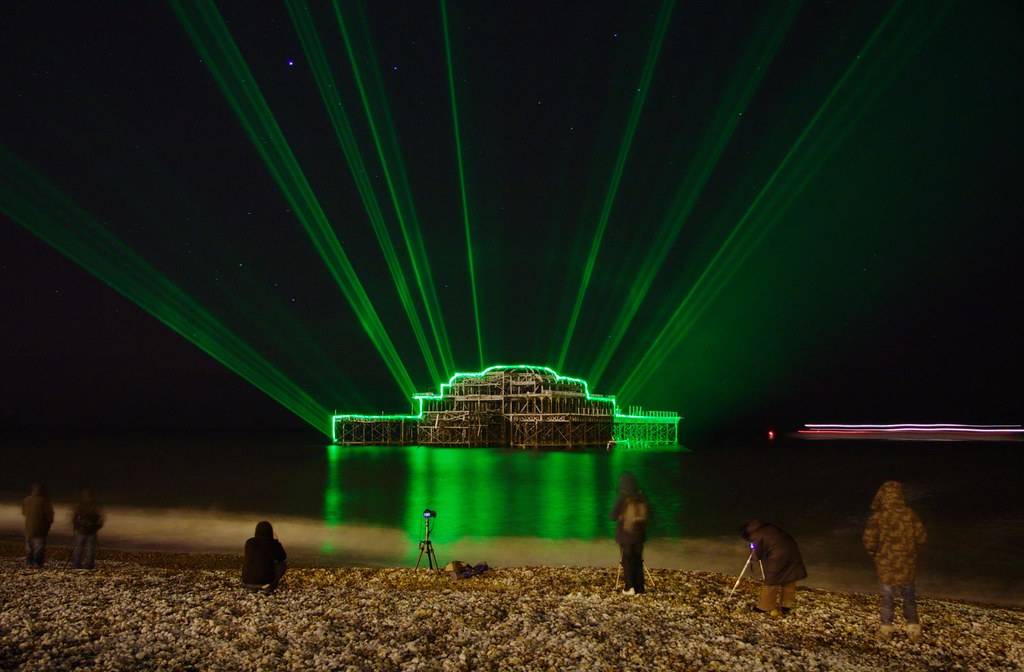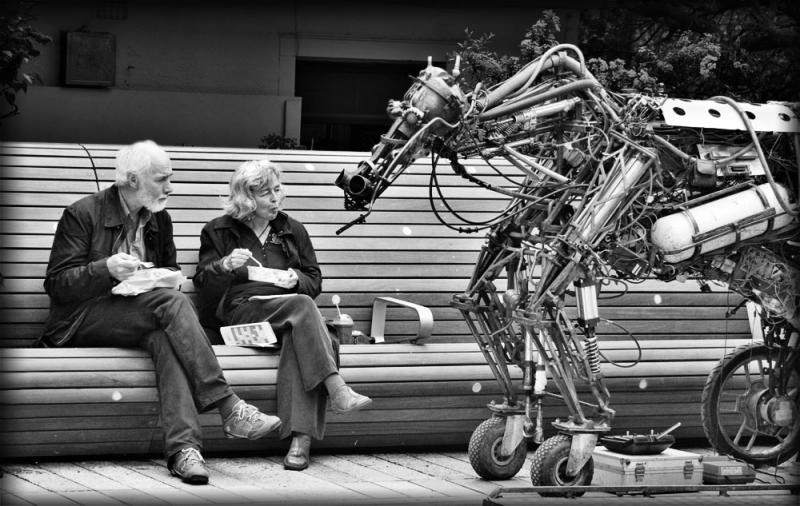Brighton: A City Dependent on Creativity
Cities over the centuries have relied on a great number of different things: the sea, a river, forests, mines, factories and whatever else works to sustain the life of a bustling metropolis. Nowadays, the modern city relies on an intricate safety blanket, woven together from many strands all reliant on one another. Though some cities have a strand they rely on much more than the others. Brighton's integral strand is creativity.
At first, it might be odd to imagine that a city may be dependant on something so intangible as creativity. In fact, it is not so much the creativity itself, but the reputation of creativity which it invokes. The entire character and physique of the city is hinged and perpetuated by this reputation. Without it, Brighton would find itself having to refocus and reorganise. A pier and pavillion are not, and haven't been for some time, enough. Margate showed tourism is not an infinite resource, but luckily Brighton has already built its defences.
So, Brighton has a creative reputation…and? What does that even mean for a start? Well, it's simple. Brighton is known for attracting and producing artists and helping them flourish. It is known for having a ready and willing audience for everything from a common functions band to a Japanese experimental free jazz quintet. It is a message of acceptance and encouragement. Brighton is place not only to create, but to find success through it.
One of the main driving forces of this reputation is that it creates its own amplification loop wherein the reputation inflates itself solely by existing. Artists, actors and musicians all flock to the town, which in turn attracts new residents who want to live in a place with a vibrant cultural scene. Therefore the audience increases too- along with the opportunities for creative types. With more opportunities means more money, which means more agencies and promoters which, of course, means more artists, actors and musicians.
While this can just lead to mass saturation, the huge amount of money to be made thanks to the influx of punters (including new residents and those coming from elsewhere such as the many surrounding towns and London) means new venues, events and shows are constantly created to cater for the need. This means there is always places for people to showcase their skills to an audience. The Green Door Store, which is packed near every night of the week and often puts on two events a night, only opened a couple of years back. This shows there is still a hunger that needs attending to and it isn't going anywhere.
There are plenty of economic benefits from this creative base. It means that every day there are plenty of people coming from outside Brighton to attend events. Just by spending money like this helps, but there is a wider effect. Brighton has well-known tourist attractions and this coupled with its reputation means people are more willing to want to spend a whole day there, or even a weekend of course there are the events that can last from a week to a month like The Great Escape and the Brighton Digital Festival). This means a lot more money gets spent and it gets spread out. This also has an effect of making up tourism losses during the winter months (no one comes to Brighton especially for the Pier in the winter, but they'll visit it any time of the year if they're already in Brighton).
The effect of this reputation also eventually has an influence of the economic structure of the town. Obviously, Brighton has seen a continuous increase in creative businesses over the years. While the city has plenty of big industry names such as American Express (although they fired a chunk of their staff this year) and Kimberly Clark, there are a huge amount of small businesses and freelancers in the city. There is a strong entrepreneurial spirit too. The Brighton and Hove Council report shows that Brighton has been consistently above the national average in "business births" since 2004.
Can this really come from Brighton's creativity though? It certainly can't claim all of the credit, but it can take a lot of it and here's why. A vibrant and diverse city offers greater options in terms of business opportunities. The target markets are much wider. With a mixture of a varied resident population and varied city visitors, it means niche stores can survive and be successful even during economic downturns. For example, in the North Laines alone you have Jump The Gun, a store dedicated to Mod and 60?s fashion, Cyberdog, a shop that sells trance and cyber gear, and Cybercandy, selling foreign sweets and drinks. These shops cannot be placed just anywhere. Brighton is perfect for them because of its attraction to huge amounts of different people and that stems from its creative roots.
So along with attracting businesses, the reputation also brings the freelancers. Plenty of businesses actively aim their services at these people which help to grease the wheels of industry. There are also other things that help to bring cohesion to a group of separate people. Workspaces such as The Skiff and The Werks, that rely on Brighton's reputation for their success, not only offer a proper environment for workers, they also run workshops and events to further improve the community. This increase in connectivity is a great boost to the local economy as a whole.
Brighton being a great place for freelancers has also made the town fertile ground for tech companies who often rely on contracting out their work to complete their goals. Brighton has a very decent industry based on technological companies. This was proven when Brighton was selected as of the cities to receive funding from the government to install ultra-fast broadband (a lot of praise has to be heaped on Wired Sussex who were heavily involved in Brighton's bid and do a lot of work to link digital businesses in Sussex). That, in itself, is another boost for the economy. Without the city's creative foundations, it is likely tech companies would have been far more hesitant to set-up shop.
The question is, what would happen if this creativity were to die out? If it did happen, it would be a gradual progression, but slowly more and more places would shut up shop. Galleries, music venues, pubs and record stores would close down. There would be a knock-on effect on the smaller local retailers too. While you would still have people coming down for the atmosphere and odd shops, the numbers would diminish and so would profits. Progressively, Brighton would become less and less unique as supermarkets snapped up emptying properties.
It certainly wouldn't be a death knell for the city as whole, but it would definitely threaten that which really makes Brighton what it is. A place of varying culture where you're just as likely to see hipsters, goths, 1920?s gentlemen, punks and rockers across one day. It's that kind of thing that sits at the heart of Brighton and it's all due to the creative energies of it's inhabitants. Without these energies, Brighton would just be another seaside resort- surviving off family one-day holidaymakers and stag dos. It'd be a shadow of its former self.



